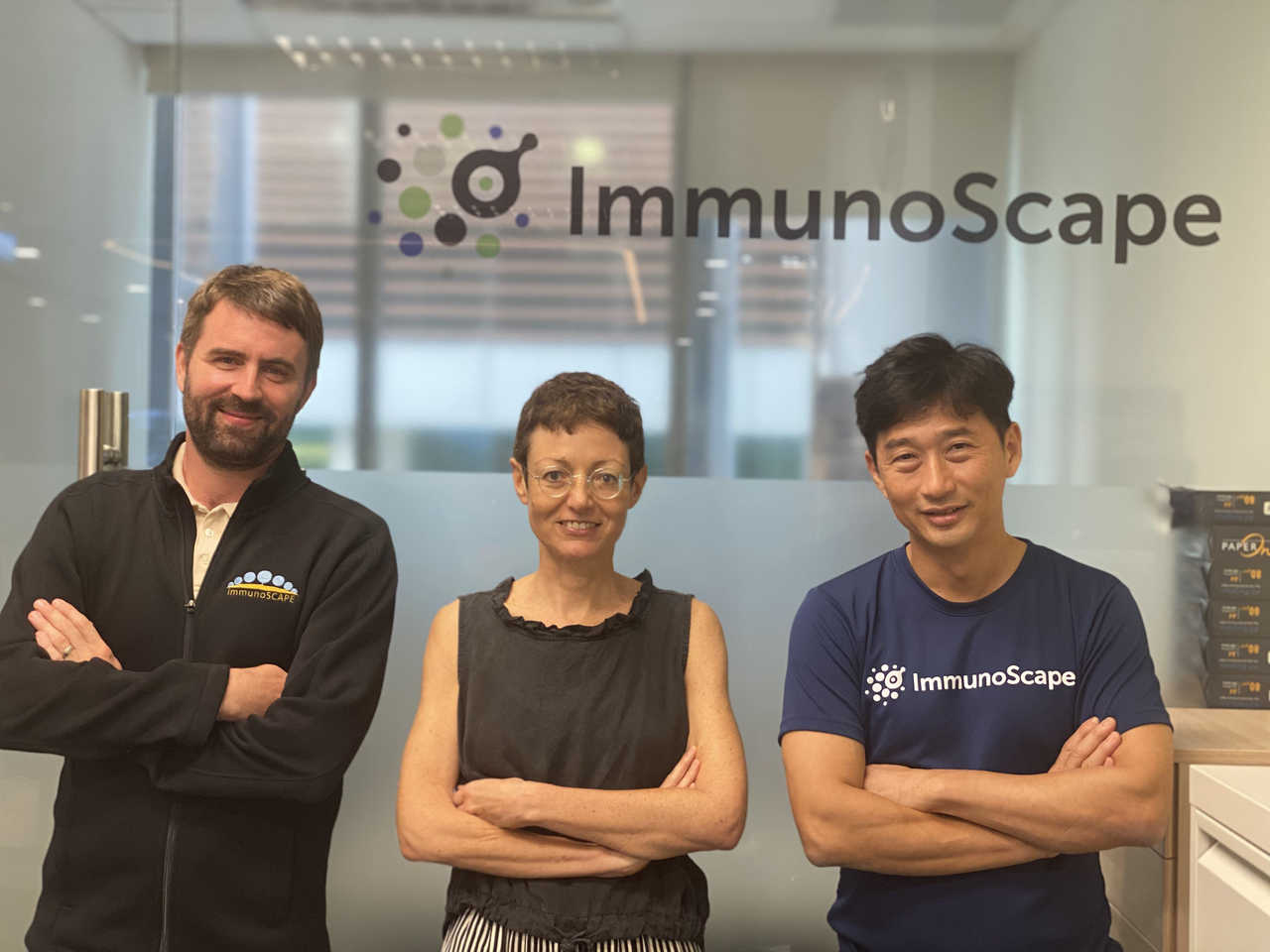Fresh $18m fund injection for Singapore biotech firm doing Covid-19 research
Sign up now: Get ST's newsletters delivered to your inbox

(From left) ImmunoScape's vice-president of operations and development, Dr Michael Fehlings; chief operating officer, Dr Alessandra Nardin; and chief executive officer, Mr Ng Choon Peng, at their office in Biopolis.
PHOTO: IMMUNOSCAPE
Follow topic:
SINGAPORE - Local biotech firm ImmunoScape has received a capital injection of US$14 million (S$18.7 million) to bring its total funding in the past year to US$25 million.
Singapore's EDBI, the Economic Development Board's corporate investment arm, led the latest fund-raising round, ImmunoScape said on Wednesday (April 14).
This was the first time a Singapore institutional investor has been involved.
EDBI, which is is investing alongside existing investors Anzu Partners from the United States and The University of Tokyo Edge Capital Partners, tapped its Special Situation Fund for Start-ups.
This helps new firms sustain innovation and entrepreneurship activities and bridge the financing gap they face amid the Covid-19 pandemic.
ImmunoScape conducts research into the immune system in areas such as immuno-oncology, which involves developing treatments that use the body's immune system to fight cancer.
It also recently announced a new study here on how T cells - a critical component of the immune system - respond to fight Covid-19 infection in vaccinated individuals.
The new funding will be used to enlarge ImmunoScape's Singapore-based team, further its expansion into the US and scale up its newly announced San Diego laboratory.
These new funds will also increase ImmunoScape's capacity for in-house research and development as well as expand its partnerships with other biopharmaceutical and drug development companies.
Chief executive Choon Peng Ng said: "Since our last funding announcement less than a year ago, we have made significant strides in our collaborations with organisations such the National Institute of Allergy and Infectious Diseases and Johns Hopkins, with whom we published multiple Covid-19 studies, one of which was recently spotlighted by the National Institutes of Health."
That study showed that the T cells of patients who were infected with the original Covid-19 virus were able to fully recognise Britain's B117 strain, the Brazilian P1 variant and South Africa's B1351 variant.

